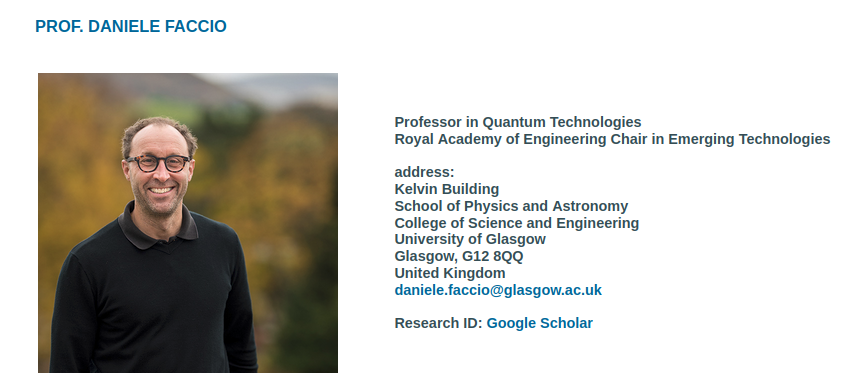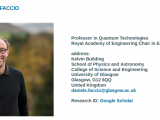
Does ghost imaging improve human vision?
4. August 2022Does ghost imaging improve human vision?
London, 08/02/2022
Ghost imaging is a computer-aided imaging technique that, when combined with human vision, can image an object that cannot be seen by the person. It is a recent development in using artificial intelligence to improve human vision.
Daniele Faccio from the University of Glasgow in the UK presented the new results at the Optica, Imaging and Applied Optics Congress entitled „Non-Line-of-Sight (NLoS) Imaging and Imaging through Scattering Media“.
The mapping is possible by correlating a projected light pattern that interacts with the object and a reference pattern that does not. This is the first time researchers have used a human visual system, with a real person viewing the light patterns instead of a camera. The brain’s visual response is recorded and used as feedback for an algorithm that determines how to reshape the projected light patterns and reconstructs the final image.
The EEG technique was used to estimate the intensity of light transmitted by the object and scattered by the white wall, information fed into a neurofeedback loop to reconstruct the image. When the EEG signal fell below a certain threshold, it was concluded that the light pattern did not overlap with the subject and could be automatically removed or excised by the system in real time.
Using this technique, researchers were able to successfully reconstruct 16×16 pixel images of simple objects that could not be seen. They also showed that the carving-out process helped reduce the observation time required for image reconstruction to around 1 minute.
“We believe this work provides ideas that could one day be used to bring human and artificial intelligence together. The next steps in this work range from expanding the ability to provide 3D depth information to finding ways to combine multiple pieces of information from multiple viewers simultaneously,” explained Daniele Faccio, Professor of Quantum Technologies, School of Physics and Astronomy, University of Glasgow.


